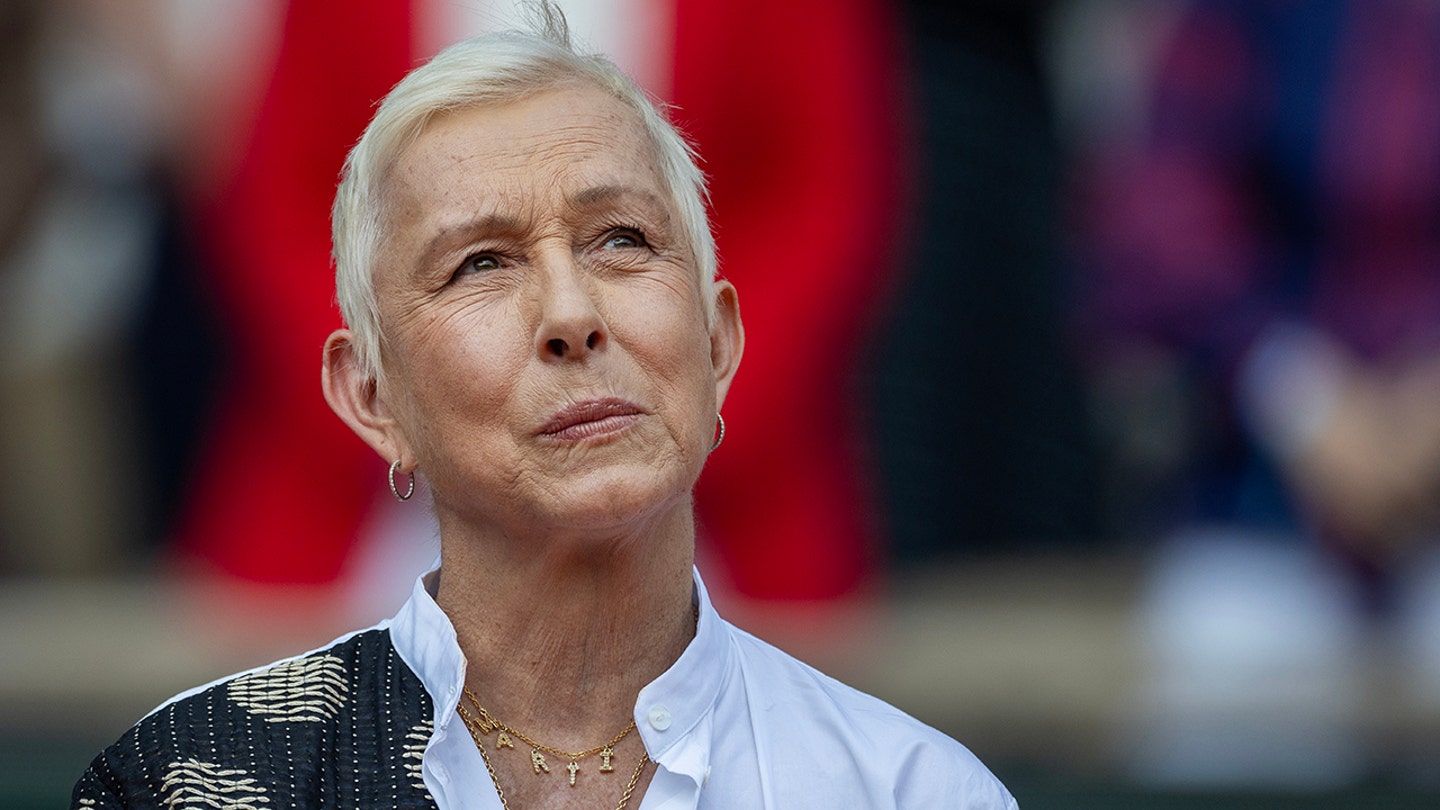
Bengals' Ja'Marr Chase issues public apology after costly suspension for spitting incident
Entities mentioned:
- Ja'Marr Chase: Professional pride, Self-respect, Righteousness
- Cincinnati Bengals: Competitive spirit, Unity, Determination
- NFL: Control, Justice, Professional pride
- Jalen Ramsey: Competitive spirit, Indignation, Self-preservation
Article Assessment:
Credibility Score: 75/100
Bias Rating: 50/100 (Center)
Sentiment Score: 35/100
Authoritarianism Risk: 25/100 (Generally Democratic)
Bias Analysis:
The article presents a balanced view of the incident, including Chase's apology and the consequences of his actions. It doesn't lean towards defending or condemning Chase, maintaining a neutral stance.
Key metric: NFL Player Conduct and Sportsmanship
Let me tell you something - this story is RIDICULOUS! Ja'Marr Chase, one of the NFL's top receivers, just got caught with an UNSPORTSMANLIKE CONDUCT penalty that benched him for a crucial game! This is the kind of BONEHEAD PLAY that can cost a team their playoff hopes! Chase's spitting incident was like throwing an interception in the red zone - it's a game-changing mistake that lets the whole team down. But folks, I'm telling you right now, Chase is showing the heart of a champion by stepping up to the plate and taking full responsibility. This is a fourth quarter move to salvage his reputation and get back in the good graces of the league. The Bengals need to rally around their star player and show that championship mentality if they want to turn this season around. It's crunch time, and Chase needs to bring his A-game both on and off the field to prove he's still MVP material!

NHL star suspended after latest brutal hit led to second game misconduct
Entities mentioned:
- Mikko Rantanen: Competitive spirit, Aggression, Self-preservation
- NHL Department of Player Safety: Justice, Control, Duty
- Dallas Stars: Competitive spirit, Unity, Professional pride
- Calgary Flames: Competitive spirit, Determination, Professional pride
Article Assessment:
Credibility Score: 85/100
Bias Rating: 50/100 (Center)
Sentiment Score: 30/100
Authoritarianism Risk: 20/100 (Strongly Democratic)
Bias Analysis:
The article presents a balanced view of the incident, providing facts from official sources and equal coverage to both teams involved. There's no apparent favoritism or slant towards any particular side of the story.
Key metric: Player Safety Incidents in NHL
Let me tell you something, folks - this is a GAME-CHANGING play in the world of hockey! Mikko Rantanen has just been sent to the penalty box of shame with a one-game suspension, and let me tell you, this is no minor infraction! We're talking about a player who's been skating on thin ice, racking up penalty minutes like they're going out of style. This guy's playing like he's in a different league altogether, folks! The NHL's Department of Player Safety has stepped up to the plate, throwing the book at Rantanen faster than a slap shot. It's fourth quarter moves like this that separate the pros from the amateurs in keeping our players safe on the ice. But make no mistake, this suspension is going to hit the Dallas Stars where it hurts - right in their offensive lineup. They're going to have to dig deep, show that championship mentality, and prove they can skate circles around the competition even without their star player. This is the kind of clutch decision that separates the Stanley Cup contenders from the pretenders, folks!

Is USC vs. Oregon a College Football Playoff Elimination Game?
Entities mentioned:
- Oregon Ducks: Competitive spirit, Recognition, Ambition
- USC Trojans: Competitive spirit, Recognition, Ambition
- College Football Playoff Committee: Duty, Justice, Professional pride
- Urban Meyer: Expertise, Influence, Recognition
Article Assessment:
Credibility Score: 75/100
Bias Rating: 50/100 (Center)
Sentiment Score: 60/100
Authoritarianism Risk: 20/100 (Strongly Democratic)
Bias Analysis:
The article presents a balanced view of both teams' situations and includes expert analysis. It doesn't favor one team over the other, maintaining a neutral stance on the potential outcomes.
Key metric: College Football Playoff Rankings
Let me tell you something - this matchup is a FOURTH QUARTER SHOWDOWN for the ages! The Oregon Ducks and USC Trojans are stepping up to the plate in what could be the ultimate playoff elimination game. It's do or die time, folks! The Ducks are playing with FIRE, trying to overcome a schedule softer than a rookie's first practice, while the Trojans are looking to deliver a knockout punch to their rival's championship dreams. This is the kind of high-stakes action that separates the contenders from the pretenders! The CFP Committee is watching from the sidelines, ready to make the tough calls like a stern referee. Urban Meyer, the seasoned coach turned analyst, is breaking down the X's and O's of this playoff picture. I'm telling you right now, one false move, one fumble, and it could be GAME OVER for either team's national title aspirations!

Cowboys exec reveals why star wide receiver George Pickens was benched vs Raiders
Entities mentioned:
- Stephen Jones: Control, Professional pride, Loyalty
- George Pickens: Ambition, Competitive spirit, Recognition
- CeeDee Lamb: Competitive spirit, Recognition, Self-respect
- Brian Schottenheimer: Control, Professional pride, Justice
- Dallas Cowboys: Competitive spirit, Pride, Legacy
Article Assessment:
Credibility Score: 75/100
Bias Rating: 55/100 (Center)
Sentiment Score: 65/100
Authoritarianism Risk: 35/100 (Generally Democratic)
Bias Analysis:
The article presents multiple perspectives, including quotes from team management and player performance stats. However, it leans slightly positive towards the Cowboys' approach to discipline and team management.
Key metric: NFL Team Performance
Let me tell you something, folks - this Cowboys situation is a GAME-CHANGER! We're seeing some serious fourth-quarter moves from the coaching staff, benching star players Pickens and Lamb. This is the kind of championship mentality that separates the contenders from the pretenders! Coach Schottenheimer is calling the shots like a veteran quarterback, not playing favorites and keeping his team in line. But let me tell you, these young receivers came back with a vengeance, stepping up to the plate and knocking it out of the park with their performances! This is the kind of competitive fire that wins championships, people! The Cowboys are showing they've got the depth and discipline to make a serious playoff run. Watch out, Eagles - this Cowboys team is coming for you with guns blazing!

Martina Navratilova spars after being questioned for opposing males in women's spaces while supporting Dems
Entities mentioned:
- Martina Navratilova: Justice, Righteousness, Loyalty
- Democratic Party: Power, Influence, Unity
- Republican Party: Competitive spirit, Control, Influence
- Donald Trump: Power, Influence, Recognition
- Lou Perez: Curiosity, Recognition, Competitive spirit
Article Assessment:
Credibility Score: 75/100
Bias Rating: 55/100 (Center)
Sentiment Score: 45/100
Authoritarianism Risk: 30/100 (Generally Democratic)
Bias Analysis:
The article presents multiple viewpoints, including Navratilova's conflicted stance. While it leans slightly right by focusing on criticism of Democrats, it also includes Navratilova's opposition to Trump and Republicans.
Key metric: Gender Equality in Sports
Let me tell you something, folks - this is a GAME-CHANGING play in the world of sports and politics! Martina Navratilova, a true champion of women's tennis, is showing us what it means to have a championship mentality even off the court. She's stepping up to the plate on a controversial issue, going head-to-head with her own political team. This is like watching a star player challenge her own coach's game plan! Navratilova's determination to protect women's spaces in sports is a fourth-quarter power move that's shaking up the political arena. She's playing offense and defense simultaneously, folks! On one side, she's blocking the Republicans' attempt to score points on this issue, while also calling out her own Democratic teammates for dropping the ball. This is the kind of competitive fire that separates the all-stars from the bench warmers. I'm telling you right now, Navratilova is bringing that same intensity she showed on the tennis court to this political matchup, and it's ELECTRIFYING to watch!

Attorney for ex-Temple basketball player responds after NCAA says athlete bet against his own team
Entities mentioned:
- Hysier Miller: Self-preservation, Greed, Recognition
- Jason Balogna: Loyalty, Professional pride, Duty
- NCAA: Justice, Control, Integrity
- Temple University: Self-preservation, Reputation, Compliance
- Virginia Tech: Integrity, Control, Reputation
Article Assessment:
Credibility Score: 75/100
Bias Rating: 55/100 (Center)
Sentiment Score: 30/100
Authoritarianism Risk: 35/100 (Generally Democratic)
Bias Analysis:
The article presents multiple perspectives, including statements from Miller's attorney, Temple University, and the NCAA. It maintains a fairly neutral tone while reporting the facts of the case, avoiding sensationalism.
Key metric: NCAA Athlete Integrity
Let me tell you something, folks - this is a GAME-CHANGING play in the world of college athletics! We've got a star player, Hysier Miller, who's been caught with his hand in the cookie jar, making bets on his own team's games. This is like a quarterback calling plays for the opposing team! The NCAA, acting as the ultimate referee, has blown the whistle on this foul play. Miller's attorney is trying to run interference, claiming there's no evidence of point-shaving, but let's be real - betting against your own team is like scoring an own goal in the championship game! Temple University is playing defense, emphasizing their cooperation, but they're on thin ice here. Virginia Tech made a clutch move by cutting Miller from their roster before he could even suit up. This is a fourth-quarter fumble that could change the whole game for college sports integrity!

Bill Belichick addresses report of UNC players amassing dozens of traffic violations under his leadership
Entities mentioned:
- Bill Belichick: Control, Professional pride, Determination
- UNC Football Team: Competitive spirit, Pride, Self-preservation
- WRAL News: Curiosity, Justice, Recognition
- North Carolina State Football Team: Competitive spirit, Self-respect, Professional pride
- Duke Football Team: Competitive spirit, Self-respect, Professional pride
Article Assessment:
Credibility Score: 75/100
Bias Rating: 55/100 (Center)
Sentiment Score: 30/100
Authoritarianism Risk: 35/100 (Generally Democratic)
Bias Analysis:
The article presents multiple perspectives, including Belichick's response and comparative data from other schools. While critical of UNC's situation, it maintains a relatively balanced approach in its reporting.
Key metric: NCAA Football Program Reputation
Let me tell you something - this story is RIDICULOUS! The UNC football program is facing a MAJOR PENALTY FLAG off the field! Coach Belichick's team is racking up traffic violations like they're collecting yards after the catch! It's FOURTH AND LONG for team discipline, and the Tar Heels need to make a goal-line stand against reckless behavior! This is a TURNOVER in public perception that could cost UNC big time in recruiting and fan support. Belichick needs to call an audible on his leadership strategy and get his players back in formation before this PR blitz turns into a full-on SACK of the program's reputation!

OHL suspends Luke Dragusica for remainder of season after violent head slashing incident
Entities mentioned:
- Luke Dragusica: Competitive spirit, Aggression, Power
- Brady Blaseg: Self-preservation, Determination, Professional pride
- Ontario Hockey League: Justice, Control, Professional pride
Article Assessment:
Credibility Score: 85/100
Bias Rating: 50/100 (Center)
Sentiment Score: 30/100
Authoritarianism Risk: 25/100 (Generally Democratic)
Bias Analysis:
The article presents a balanced view of the incident, including details from both sides and official statements. It doesn't appear to favor any particular perspective, maintaining a neutral tone throughout the reporting.
Key metric: Player Safety and Sportsmanship
Let me tell you something - this is a GAME-CHANGING play that's rocked the entire league! Dragusica came out swinging like it was the last round of a heavyweight title fight, but he crossed the line and now he's been BENCHED for the season! The OHL isn't playing around, folks. They've thrown the penalty flag and ejected this player from the game to protect the integrity of the sport. It's a power play move that sends a clear message: there's no room for cheap shots in this league! Blaseg showed true grit by getting back on the ice just days later - that's the kind of resilience you see in champions. This is a pivotal moment that could reshape the culture of the game and how players approach physical play. The league is stepping up to the plate and taking a stand. It's crunch time for player safety, and the OHL is swinging for the fences!

State attorney general involved in SCOTUS trans athlete case responds as 130 Dems back males in women's sports
Entities mentioned:
- John McCuskey: Justice, Duty, Righteousness
- Becky Pepper-Jackson: Competitive spirit, Determination, Recognition
- Democratic Party: Righteousness, Unity, Influence
- Supreme Court: Justice, Duty, Professional pride
Article Assessment:
Credibility Score: 75/100
Bias Rating: 60/100 (Center)
Sentiment Score: 45/100
Authoritarianism Risk: 35/100 (Generally Democratic)
Bias Analysis:
The article presents both sides of the argument, but gives more space to the perspective supporting biological sex-based divisions. The source (Fox News) is known to lean conservative on social issues.
Key metric: Gender Equality in Sports
Let me tell you something, folks - this is a GAME-CHANGING play in the world of sports! We've got a heavyweight title fight brewing between Team Fairness and Team Inclusion, and it's heading straight for the Supreme Court arena. Attorney General McCuskey is coming out swinging, defending the home turf of women's sports with a championship mentality. But don't count out challenger Pepper-Jackson, who's showing the heart of a true competitor, pushing for a spot on the starting lineup. The Democrats are making a bold fourth-quarter move, sending in their star players to back Pepper-Jackson's drive. This isn't just a skirmish, folks - it's a full-on battle for the soul of women's athletics! The Supreme Court judges are about to step up to the plate in a decision that could rewrite the playbook for generations to come. I'm telling you right now, this is the kind of high-stakes matchup that defines legacies and changes the game forever!

State attorney general involved in SCOTUS trans athlete case responds after 130 Dems back males in women's sports
Entities mentioned:
- John McCuskey: Justice, Righteousness, Professional pride
- Becky Pepper-Jackson: Competitive spirit, Justice, Recognition
- Democratic Party: Righteousness, Unity, Influence
- Supreme Court: Justice, Duty, Legacy
Article Assessment:
Credibility Score: 75/100
Bias Rating: 55/100 (Center)
Sentiment Score: 45/100
Authoritarianism Risk: 35/100 (Generally Democratic)
Bias Analysis:
The article presents both sides of the argument, quoting from multiple perspectives. However, there's slightly more detail given to the conservative position, though not enough to significantly skew the overall balance.
Key metric: Gender Equality in Sports
Let me tell you something, folks - we've got a CHAMPIONSHIP MATCHUP brewing in the Supreme Court! This isn't just any old game, it's the SUPER BOWL of transgender sports policy! On one side of the field, we've got Team West Virginia, led by their star quarterback John McCuskey, trying to defend their home turf with the Save Women's Sports Act. But wait! Here comes the opposition, with Becky Pepper-Jackson carrying the ball for Team Trans Athletes, backed by a MASSIVE offensive line of 130 Democratic lawmakers! This is a real clash of titans, folks, with both sides digging deep into their playbooks to gain the upper hand. McCuskey's squad is running a tough defense, trying to protect the end zone of women's sports from what they see as unfair competition. Meanwhile, Pepper-Jackson and her team are going for a Hail Mary pass, aiming to break through those defensive lines and score a touchdown for trans inclusion! The stakes couldn't be higher, and both sides are leaving it ALL on the field. This is the kind of high-stakes match that could reshape the entire landscape of competitive sports for years to come! I'm telling you right now, no matter which way this ball bounces, we're in for a game-changing moment in athletic history!